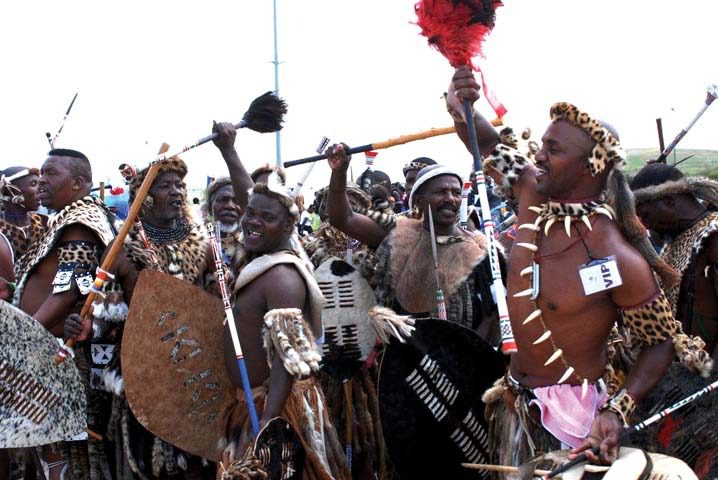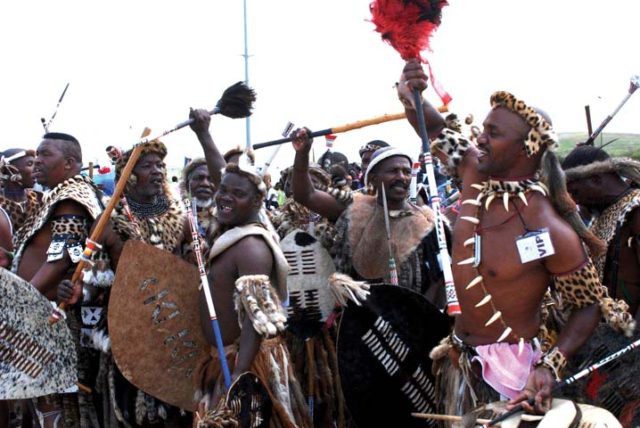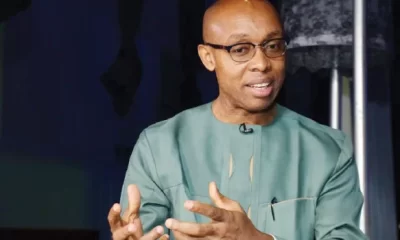Global Issues
Zululand and Story of How We Begin To Remember -By Steve Ayorinde

It is exactly one month since the Zulu King, Goodwill Zwelithimi, made the utterances that reportedly sparked the latest xenophobic violence in South Africa. But it does not look like the black brethren down south have mastered the art of public communication.
Yesterday, when the whole of Africa was trying to appraise the extent of damage that has been done, the South African Consul General in Lagos, Mr. Sam Monaisa, was still struggling with how to communicate about fellow Africans without bitterness. In a statement released to the South African Business Forum (SABF), announcing the closure of the South African Consulate in Lagos over fears of reprisal attacks, Monaisa accused Nigerians of using the social media “to blow an already tensed situation in South Africa out of proportion and stocking emotions.”
His statement to SABF did not borrow a leaf from the calming message of the South African High Commissioner in Abuja, who spoke in the spirit of comradeship to assure that his government back home is pulling its weight to stem the dangerous tide that has already seen seven people gruesomely killed. Rather, the Consul General chose the dodgy, hard-line stance of the Zulu King to blame others but the real perpetrators of violence for the barbaric act of killings and lootings that have trailed the King’s inciting statements. For adding in his statement that “this was why Nigerians believed that their compatriots were being killed daily in South Africa,” Mr. Monaisa was just being acerbic.
What did Nigerians say on social media that was worse than the gory killings and wanton lootings of shops and homes of foreigners in his country? Did Nigerians record and post those horrific images on the net? In one of such killings which Monaisa say Nigerians are blowing out of proportion, that of Emmanuel Sithole, a Mozambican citizen, was particularly galling. His horrific murder last Saturday in Alexandra, north of Johannesburg, was committed in full view of journalists. If eight Nigerians then decided to signify interest to be evacuated home after such horror and their relations express disgust on social media, should an envoy describe such as “stocking emotions”?
What has happened in the past three weeks in South Africa is bad enough. But the xenophobic attacks would be made worse on Africa’s collective memories if certain South African nationals are making unguarded statements that could further infuriate others. How does Monaisa expect anyone to keep still over the horrific pogroms taking place in Zululand, the same land that the collective will of African brotherhood, particularly the support from Nigeria, helped liberate from the pangs of apartheid?
Considering that a similar xenophobic attack in South Africa had 64 casualties, this envoy’s statement is the type that could get Africa to revisit its contribution to the liberation struggle in South Africa and perhaps review future dealings as Mozambique is being forced to.
The controversial remarks made by the Zulu king exactly a month ago translates in English as: “we ask that immigrants must take their bags and go where they came from.” Yes, the context is as important as the correct letter of the original isiZulu language in which he spoke. But his clarification has not been very reassuring when he tried to calm things down last week. His clarification was a classic case of Orwellian double-speak. According to the Zulu king, “the people who listened to my speech…have not killed anyone or committed any crimes,” rather, his concerns, he stated, was meant to address the socio-economic issues facing his country, particularly crime. While blaming the media for misrepresenting him, the King said his statement was directed at raising concerns about “people that came to South Africa to commit crimes.”
Monarchs hardly apologise, whether they are highlighting the importance of local festivals over political rallies or they are into the lagoon cantata. They only clarify statements that may be considered offensive. And in case any of their subjects are in doubt over what the import of a royal threat might portend, King Zwelithimi gave a hint: “If I indeed had called for violence, then this country would have burnt to ashes,” he said to a loud applause. It is pointless to ask the palace how much South Africa burnt when the ANC leaders were remanded in jail and blacks could not ride in the same buses with whites. Or was there no Zululand before the collective effort of Africa brought liberation to South Africa? Yet, this type of diatribe only highlights the story of how Africa should begin to remember the events of our recent past as they concern South Africa.
If the excuse is that foreigners are denying locals job opportunities as being alleged, should we resort to violence? How well is Zululand addressing the qualification deficit hampering many black South Africans from reaching their full potential? A country that prides itself as the second largest economy in the continent and, perhaps, the closest to the West in terms of socio-infrastructural development should not embarrass Africa further with xenophobia as it has done with rape and violent crimes as well as insouciance to the HIV scourge.
What Zululand needs to be reminded of is the great words sung in the award-winning Graceland album by Paul Simons in concert with Joseph Shabalala’s Ladysmith Black Mambazo. The words of courage and camaraderie…words about bonding and brotherliness contained in Under African Skies, especially in its evergreen chorus – this is the story of how we begin to remember – ought to soothe every aggrieved African and remind him of how we should always be our brother’s keeper.
Africa has done well in condemning this act of divisiveness.
It should also commend the South African authorities for finally swinging into action to bring order and sanity into a country which Paul Simon, almost 30 years ago, rightly described as the continent’s Graceland.




















